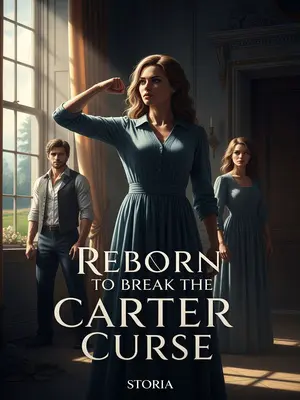Chapter 8: Triumph in the Courthouse
My voice was steady, clear. The crowd murmured, some nodding in agreement. I saw Melody smile, her confidence in me unwavering.
Trevor scoffed: "My mom gave you food and clothes; it’s only right you worked."
His words were bitter, resentful. I shook my head, refusing to let him rewrite history.
I covered my mouth in surprise: "By that logic, I was just a servant in the household. In that case, my allowance was deserved."
I let the sarcasm drip from my words, the crowd chuckling at Trevor’s expense. He glared at me, his fists clenched.
Trevor was stunned, then snarled: "The Whitaker family fed you, and you still want money?"
His voice was thick with anger, his pride wounded. I met his gaze, unafraid.
"As the trustee says, as an adopted daughter, I should work without complaint, not expect a coin." I lowered my eyes, acting as if he was right and I couldn’t argue.
The judge watched us, his eyes sharp. I could tell he was weighing every word, every gesture.
"Evelyn! Stop being sarcastic!" Trevor shouted.
"Trustee," the judge reproached him.
I signaled Melody to come forward and explained. Eight years ago, I helped Melody, who sold herself to bury her father. Later, she opened a small food stall in Maple Heights, which prospered, and she soon bought a shop in my name, saying she owed everything to me. Melody became Melody, and the shop became Oak & Vine. "So Oak & Vine was opened without a penny from the Whitaker family," I said.
The crowd murmured, impressed. Melody nodded, her eyes shining with pride. Trevor scowled, refusing to accept the truth.
Trevor wouldn’t give up: "Even you were saved by the Whitaker family; anyone you helped is part of it! The money you used to help her was the Whitaker family’s!"
A voice in the crowd: "Of course not!"
I turned to see Charlotte, angry. She hurried over, scolding: "Why didn’t you tell me about this?"
Charlotte’s presence was a relief, her support unwavering. I smiled, grateful for her loyalty.
I asked quietly: "Did your parents let you come?"
Her voice was soft, her eyes worried. I squeezed her hand, reassuring her.
My troubles weren’t good news; her parents surely didn’t want her involved. She muttered: "After hearing about you and Mr. Jennings, they agreed."
She was annoyed. I patted her arm understandingly. Charlotte stopped chatting, addressed the judge, and explained: "At that time, Evie had no money. She borrowed from me to help Melody, and later I funded Oak & Vine’s expansion."
Trevor didn’t believe it: "You paid, but let her be the boss?"
Charlotte was incredulous: "Why not? Evie invented the recipes and managed the business; I just collect money. Who wouldn’t want that?"
Then she realized: "Oh right, your family doesn’t like easy money; you prefer to work more and earn less."
The crowd burst into laughter, the tension broken. Trevor’s face turned red, his pride wounded.
This jabbed at their lack of business sense and refusal to let me manage. The crowd burst into laughter. "Ain’t that the truth, they don’t even like easy money!"
"No, you’re wrong—they want to swallow Oak & Vine with a few words! Big appetite!" said the Jennings family’s assistant.
"That’s Oak & Vine! $100 for a bottle of wine, and the bottle’s tiny!"
The crowd’s talk drifted. "Order! Trustee, do you have other witnesses or evidence?"
Trevor had none; he only saw things his way. Foolish. He kept repeating: "It’s not fair. Evelyn was bought by my mom; what’s hers is mine..."
But no matter what he thought, the case was clear. The judge ruled Oak & Vine was my private property, unrelated to the Whitaker family, and no one from it could seize it by illegal means. The crowd was pleased, praising the judge. But I was not. Why should they sue and bully me at will? I’m not that easy. "Thank you, Your Honor. I also have a complaint: Trevor is ungrateful and disrespects his older sister."
The judge’s eyes widened, the courtroom buzzing with excitement. Trevor looked stunned, his mouth opening and closing in disbelief.
Ungrateful conduct was a grave offense in the state code, punishable by loss of inheritance. But as I was only his adoptive older sister, not real mother, the penalty would be up to the mayor. I wanted the mayor to judge. I believed he’d seize the opportunity. Sure enough, the mayor stripped Trevor of his trustee title and ordered him to study etiquette, not to disgrace his grandfather and mother. The words were meaningful, as both had once coerced the mayor with favors and had no standing before him. As for me, whether because I presented the case well or because of Mr. Jennings, the mayor didn’t punish me but praised me as "good." Because of this, the Whitaker family didn’t dare meddle with my marriage. And no matter what people thought, at least publicly, no one dared say I was wrong to sue Trevor. They only blamed him, since under his generation, the Whitaker family lost even its trustee. For a while, the Whitaker family was the laughingstock of Maple Heights. I moved out of Oak & Vine when the Whitaker plaque was taken down. I didn’t return to the Whitaker house, but moved into a three-bedroom house, where Mrs. Jennings asked Charlotte’s mother to act as my elder and arrange my wedding. By then, I no longer cared about the Whitaker family, focusing on my dowry. Knowing them, they’d ruin themselves without my help. But Melody and Quinn checked on them daily, saying they needed to know the villains’ fate or they’d be itchy with curiosity. I let them be. I heard that after Trevor lost his title, he became dejected, and his so-called close kin—Savannah and Uncle Mark—showed their true colors. Trevor was moved from the best main room to the shabbiest attic, and all the antiques and assets were seized. Having never known poverty, he soon fell into gambling under Uncle Mark’s schemes, losing his right-hand fingers and his future. As for Savannah, she finally became the sole mistress and was matched with a promising young man, though his family was humble. At first, persuaded by Uncle Mark, she was content, but Trevor kept reminding her she was better than me and shouldn’t marry worse. Stirred up, she refused to marry, and the decent family, hearing she was starving herself, broke off the engagement. Uncle Mark, furious, slapped her twice before everyone and had Trevor’s legs caned.
Their downfall was swift, their pride their undoing. I felt no satisfaction, only a strange sense of closure. The past was behind me, and I was free to start anew.
None of this affected my life. What did was the man in Boston who wrote to me every few days. He always complained my replies were slow, as I often received his next letter before replying. He never asked about the Whitaker family or my wellbeing, certain I could handle anything. He wrote about Boston’s scenery, his work troubles, and a bowl of cinnamon cider in a deep alley. Sometimes he added a little poem at the end—bad, but every word was affectionate. Each time I picked up my pen, I felt a strange nervousness, wondering what expression or mood he had writing, and why he liked me. Then a reply would be delayed day after day. Charlotte said I was lovestruck; as she said this, Mrs. Jennings peeled oranges nearby, and Adam played on a swing. My heart and face grew hot together.













